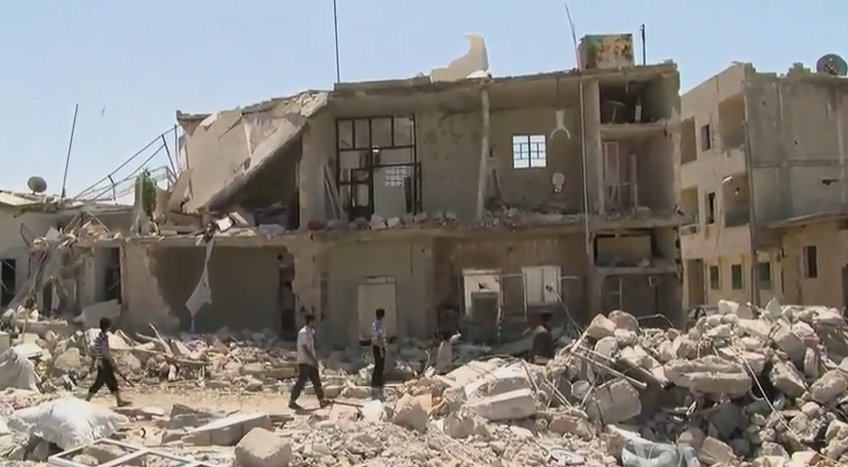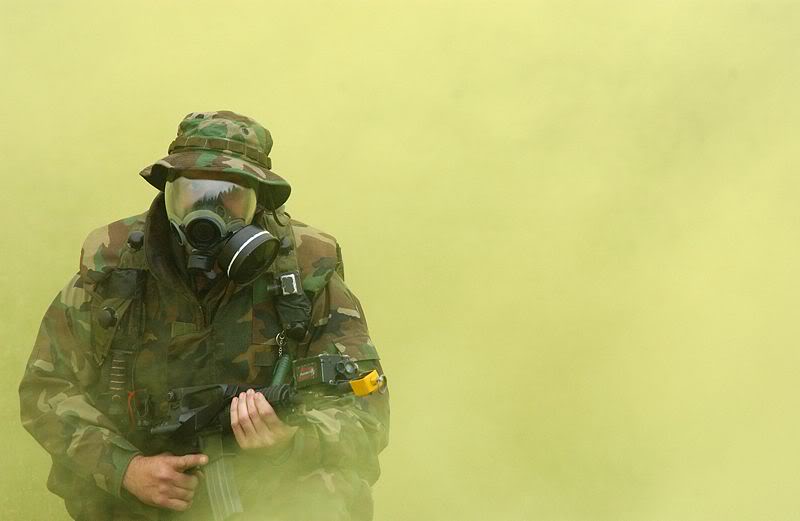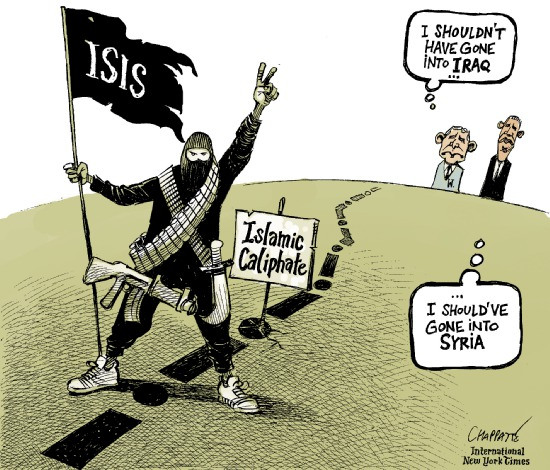By: Kavita Bapat
On 4 October, India and Afghanistan signed a significant partnership pact agreeing to increase cooperation on counterterrorism efforts, the training of security forces, and boosting trade relations. Though the pact is a considerable step forward for the India-Afghanistan nexus, it has raised concerns of antagonizing Pakistan at a decisive juncture in the Afghanistan war. The agreement, signed by Afghan President Hamid Karzai on a two day diplomatic visit to Delhi, includes measures to ensure greater Indo-Afghan political and cultural engagement. Additionally, the agreement sees India pledging greater support and involvement in stabilizing Afghanistan as the country contends with rising extremist violence and readies for the withdrawal of NATO security forces in 2014. During Karzai’s visit, he and Indian Prime Minister Manmohan Singh discussed the rise of terrorism in the region at length, but any mention of Pakistan was noticeably missing in either leader’s public statement. Singh remarked, “our cooperation with Afghanistan is an open book,” furthermore stressing civilizational links and adding that the agreement creates an “institutional framework” to build future ties upon. For his part, Karzai stated Afghanistan’s utmost appreciation at New Delhi’s “understanding of its difficulties” and that he was “grateful forIndia’s help.” Singh and Karzai also announced that part of the agreement ensured bi-lateral commercial ties in the development of hydro carbons, including natural gas, mining, and mineral exploration. Singh also pledged to work to improve Afghanistan’s economic integration with India and the South Asian region.
While he did not mention Pakistan directly, Karzai re-iteratedAfghanistan’s recognition of the regional dangers caused by terrorism and radicalism. Political analysts claim that Afghanistan and India have built a strong bond in recent years over their mutual suspicion of Pakistan’s role in fuelling recent violence in Afghanistan. Geostrategic ties between the nations extend even further, as India is currently Afghanistan’s largest regional donor, having invested over $2-billion in infrastructure and development projects. However, former Indian diplomat Lalit Mansingh says that this investment “does not mean that India is going to rush its troops to Afghanistan or ship military equipment there,” he suggests that it merely indicates India’s entry into the regional sphere so far denied to it by Western nations. Mansingh states that for years the West did not want an Indian presence near Afghanistan. Since President Obama’s visit to India last year however, Western actors have been openly suggesting a more active role for India, endorsing the India-Afghanistan Security Pact. According to Mansingh and his colleagues, the bi-lateral pact is tantamount to India’s becoming Afghanistan’s guarantor of stability post-2014.
The bi-lateral pact also comes at a time of souring relations between Kabul and Islamabad in the wake of Afghan officials accusing Pakistan’s Inter-Service Intelligence Agency (ISI) of supporting recent high-profile assassinations in Afghanistan. Many commentators thus claim that the pact with Pakistan’s longtime rival in the midst of these allegations may further weaken relations. Ties between Kabul and Islamabad became severely strained after President Karzai accused Pakistan of playing a double game due to its links with various Islamic militant groups. Furthermore, Pakistan has made no secret of its desires for greater say in the molding of any peace agreement in Afghanistan, whereas India has so far taken a more subtle approach to building influence through investment and aid. According to political analysts, Pakistan is alienating itself from governments in both Washington and Kabul and is now looking ever more isolated after the India-Afghanistan pact. It is worth noting that Pakistan and Afghanistan also signed a trade agreement last year, though the accord has yet to yield significant changes in regional trade patterns. The threat of a vengeful Pakistan has led President Karzai to reassure Islamabad about the peaceful nature of the strategic partnership agreement with India, seeking to quell Pakistani fears of encirclement. Just days after the pact was signed, Karzai publicly stated; “Pakistan is a twin brother, India is a great friend. The agreement we signed with our friend will not affect our brother… This strategic partnership is not directed against any country, this strategic partnership is to support Afghanistan.” His statements, however, are not likely to pacify Pakistan, which has always been wary of an aggressive India on its eastern border and a pro-Delhi Afghanistan on its western frontier.
When questioned about the India-Afghanistan pact, Pakistani Prime Minister Yusuf Raza Gilani avoided speaking about the issue directly, instead shifting the focus to regional peace and prosperity. Pakistan’s government is losing domestic popularity, with public resentment growing rapidly over key issues such as power cuts and the state’s failure to prevent recurrent Taliban suicide bombings. Independent Pakistani political analyst Hasan Askari Rizvi claimed that the pact will increase suspicion as, “there is so much Indian obsession in Pakistan that with every minor Indian move, there is panic.” Though nuclear-capable Pakistan and India have been attempting to advance bi-lateral relations, analysts claim that Pakistanis keen on minimizing any Indian role in Afghanistan. To do so, it is contended, Pakistanis considering utilizing its connections with the Haqqani militant network to counter India’s influence, a prospect that has infuriated Washington.
Top US military brass have already accused Pakistan’s Inter-Services Intelligence Agency (ISI) of supporting attacks allegedly executed by the Haqqani network, most notably the siege of the US embassy in Kabul on 13 September 2011. Pakistan denies all ties to the insurgent group, claiming that it is committed to aiding all parties in securing sustainable peace in Afghanistan. However, India views Pakistan’s deep ties with Afghanistan-based militant groups with increasing concern. In particular, India wishes to ensure that civil war is not spread by Islamist militant groups upon the withdrawal of NATO troops. India has publicly stated its suspicions of Pakistan’s involvement in several large-scale regional attacks, including two bombings of its embassy in Kabul in 2008 and 2009. These incidents were viewed by Delhi as threats from Islamabad to stay out of its “backyard.” Observers claim, however, that Pakistan must also be careful in its actions as it remains heavily dependent on foreign aid and does not have the economic resources to compete with India in Afghanistan. Additionally, security analyst Ayesha Siddiqa contends that if Pakistan continues playing proxy games, “it will ultimately pay the price, as it is not only an extremely dangerous and damaging game, but also an extremely risky game which has greater blowback for Pakistan.”
Senior Afghan officials have already accused Pakistan’s ISI of masterminding the assassination of Kabul’s chief peace negotiator with the Taliban, with Karzai himself claiming there was a Pakistani link to the killing. Nevertheless, C. Raja Mohan, senior analyst at the Centre for Policy Research in New Delhi, claimed that, though both India and Afghanistan are facing problems in dealing with Pakistan, all three governments must work together if there is to be continued regional peace and stability. For the moment, President Karzai has claimed that he is “grateful” for India’s assistance and re-stated his government’s commitment to working with Europe, India, and the US towards Afghanistan’s future. The India-Afghanistan agreement is part of Karzai’s plan to increase and expand a network of alliances to help stabilize Afghanistan before the 2014 withdrawal of NATO security forces. The possibility remains however, that upon the withdrawal of NATO troops the new Afghan-Indian security pact could inflame Pakistan’s proxy war against India. While there has been a great deal of speculation regarding NATO’ post-2014 role in Afghanistan, it is regional states like India that will truly bear the burden of South Asian insecurity.
Further Reading: Afghanistan-Pakistan-India Dynamic; Karzai Reassures Pakistan Over India Pact; Will India Regret Supporting Karzai?
Disclaimer: Any views or opinions expressed in this article are solely those of the author and do not necessarily represent those of the NATO Council of Canada.



